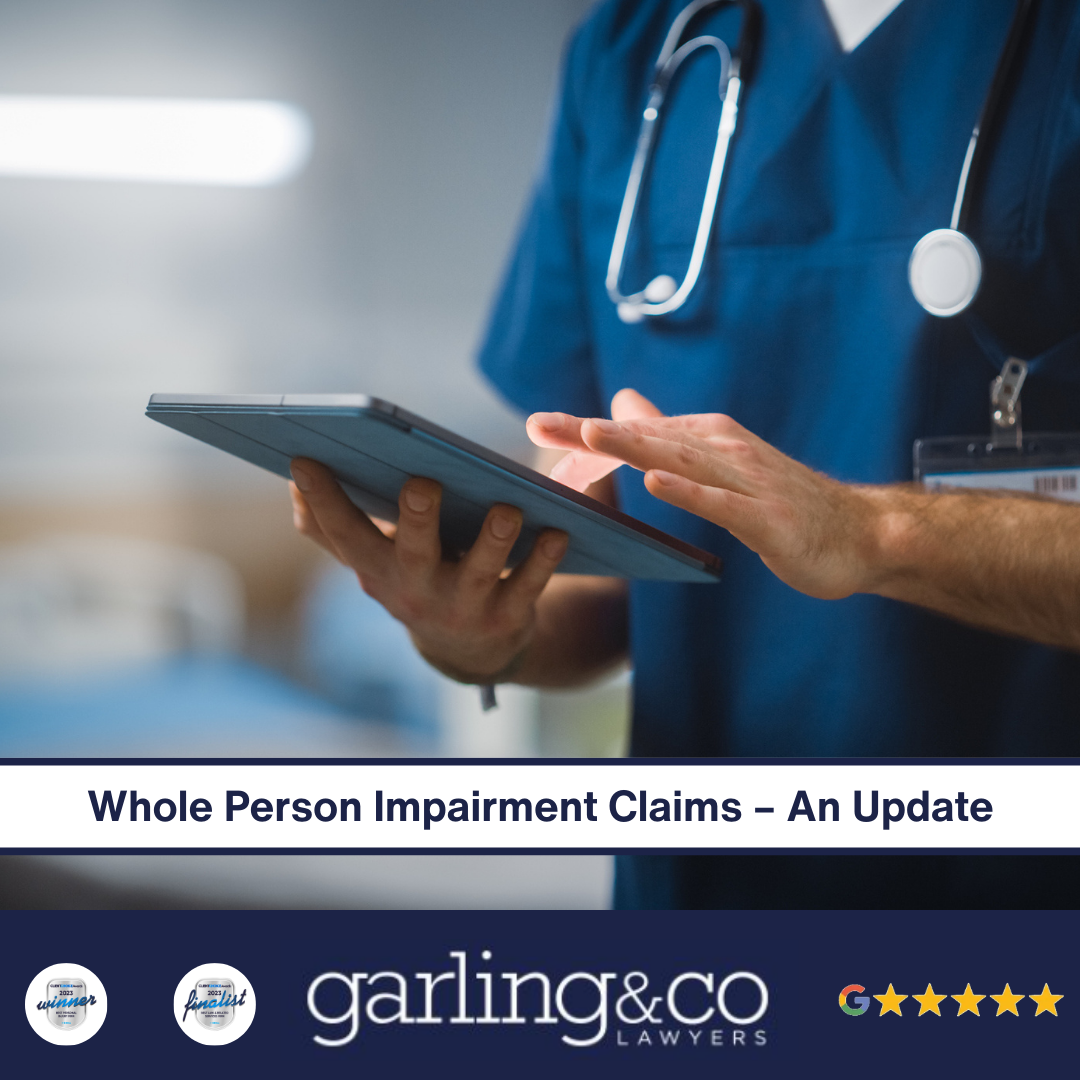Whole person impairment claims – an update
A claim for Work Injury Damages is a claim in negligence against your employer.
If as a result of an injury sustained in the course of employment, you have sustained a permanent impairment, the Workers Compensation Act allows for a worker to claim a lump sum amount of compensation for that impairment.
This lump sum amount is in addition to the payment of weekly compensation and medical expenses.

Quick Links
An injured worker is therefore entitled to a lump sum in accordance with the percentage whole person impairment assessed.
We have a number of blog articles explaining whole person impairment claims as follows:
- Blog – Whole Person Impairment Claims
- Blog – Understanding the Importance of Whole Person Impairment Claims in Workers Compensation
- Blog – How Do Doctors Assess WPI for Spinal Injuries
These articles provide a comprehensive outline of how to make a claim for whole person impairment, how much lump sum compensation is payable and importantly how the percentage whole person impairment that is determined affects your rights to continue to receive weekly payments of compensation and medical expenses.
Assessing the whole person impairment is now probably the most important aspect of a worker’s compensation claim. The determination of the assessment of whole person impairment significantly effects your rights to continue to receive weekly compensation and medical expenses and importantly whether you are entitled to make a claim for Work Injury Damages.
A claim for Work Injury Damages is a claim in negligence against your employer and we refer to our blog article here.
How Much Lump Sum Compensation is Payable
For injuries sustained on or after 5 August 2015, the amount payable for lump sum compensation has been increased as per the following table:


The assessment of whole person impairment affects the following:
- How long you are entitled to receive weekly compensation payments;
- How long you are entitled to receive medical expenses; and
- Whether or not you are entitled to pursue a claim in negligence against your employer for Work Injury Damages.
Only one claim for whole person impairment can be made. After making that one claim, you cannot return and claim an increase in lump sum compensation should your condition deteriorate in the future.
The Timing Of When To Make A Claim
The timing of when you make your claim for lump sum compensation for whole person impairment is therefore crucial.
If you make a claim for whole person impairment too early and the assessment of whole person impairment is for example 10% or less, then you will not receive any lump sum compensation and weekly payments will cease after a maximum of 5 years and you will not be able to make a claim for Work Injury Damages.
If for example, further surgery was then required and your whole person impairment was actually 25%, you are not entitled to return and claim an increase from the prior assessment of 10%.
The timing of when to have your whole person impairment is therefore critical in determining both the amount of lump sum compensation but also critical for how long you are entitled to receive weekly payments and medical expenses and whether or not you can make a claim for Work Injury Damages.
It is crucial therefore that you seek advice from an accredited specialist in personal injury law as to the timing of when to make a claim for whole person impairment.
Failure to make a permanent impairment claim properly and at the right time can mean that your weekly payments cease after 5 years and you have no ongoing entitlements. It is probably one of the biggest decisions you can make in any claim and needs to be made by an expert who has many years of experience in the workers compensation system.
You should only seek advise from an Accredited Specialist in Personal Injury law that is experienced in Workers Compensation Claims.
Beware of being delegated to a junior lawyer for this assessment as its too important to get wrong!












